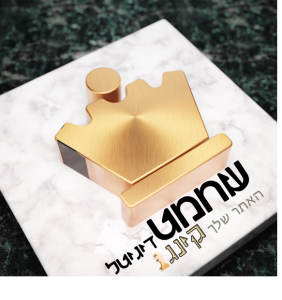Passover -If Only…
If Only…
Ever had one of those moments?
……..You wished you had not opened your mouth and said something you immediately regretted. How often even before the lips have re-closed, did we wish, “if only I had not said that”?! Or, do we listen to what we are saying with shock and surprise and think to ourselves, “Am I actually saying that?” Unfortunately, this is the tragedy of life
We are given two wonderful security gates which have to be opened in order to allow the message to escape; nevertheless, too often we are trigger happy and leave the gates on open auto-pilot not sealing our lips or holding our peace. And then we are left to say, “If only……”
How much tragedy resentment frustration and pain in our lives could be avoided if only we would learn the secret of the sounds of silence? All too often we speak spontaneously and without restraint; shooting our mouths off, only later to regret our words. We boast, we talk too much; without thought, especially about things we should not talk about.
Words are powerful and can be harsh and harmful. We are blessed with tongues that speak words. It could be words of love, praise, kindness, forgiveness and encouragement, and it could also be words full of hatred, disrespect and contempt
There is a well known saying based on the verse in Mishlei (Proverbs 17:28):“Better to keep your mouth closed and be thought a fool than to open it and remove all doubt”.
We read in the Haggada: “VaYered Mitzryma: Anus Al Pi HaDibur,” – And he went down to Egypt forced by Divine decree.
This passage from the Haggada refers to Yaakov Avinu, our Patriarch Jacob. The Haggada is informing us that Yaakov was ‘forced’ by the ‘dibur’ to go down to Egypt. Almost all of the commentators on the Haggada explain the passage as follows: Yaakov went down to Egypt. He was coerced by Hasher -who here is referred to with the strange and unusual title: “HaDibur”.
Because of the fact that the commentators assume that it was Hashem who coerced Yaakov to go down to Egypt, they are “forced” to find the verse which indicates that Yaakov was actually ‘forced’ to go down to Egypt. This is especially difficult in light of the fact that the verse explicitly states: “And Israel said, `Enough! My son Joseph is still alive. I will go and see him before I die`.” (Bereshis 45:28 (.
This certainly does not sound as if Yaakov was ‘forced’ down to Egypt!
In light of this difficulty, the commentators point to verse( Bereshis 46:3 )where Hashem says to Yaakov “I am God, the God of your father. Do not be afraid of going down to Egypt, for there I will make you into a great nation”, as proof of the fact that Yaakov was hesitant to go to Egypt and that therefore Hashem had to ‘force’ him to continue his journey. Since the verse indicates that Yaakov was ‘afraid’ to go down, it must be therefore that Hashem forced him to make the journey to Egypt.
However, there is a new and original approach to explain the original passage offered by HaRav Shlomo Kluger the Rabbi of Brod, Poland in his commentary on the Haggada entitled Yerios Shlomo In his approach to this passage, the verse “VaYeired Mitzrayma: Anus Al Pi HaDibur“, does not refer to Hashem’s ‘forcing’ Yaakov to go down to Egypt at all. Rather, he suggests that it has to do with an incident many years before the birth of Yaakov.
Rav Kluger postulates that although Avraham was told by Hashem that his children would be enslaved, “You shall surely know that your seed will be strangers in a land that is not theirs, and they will enslave them and oppress them, for four hundred years” (Bereshis 15:13). However, who will enslave them and where, is never stated.
Why, asks Rav Shlomo Kluger did Hashem choose the Egyptians who were so morally tainted and depraved to enslave His people? His answer is that in truth the Children of Israel did not have to be enslaved by the Egyptians. Hashem could have picked a more hospitable captivity. However, we read in the Torah the following incident.
After Sara was unable to conceive, she gave over her maidservant Hagar to Avraham as a wife. The Torah tells what happened next: “And he came to Hagar, and she conceived, and she saw that she was pregnant, and her mistress became unimportant in her eyes” (Bereshis 16:3) How did Sara react to her for maidservant’s disrespect The next verse states: And Sarai said to Abram, “May my injustice be upon you! I gave my handmaid into your bosom, and she saw that she had become pregnant, and I became unimportant in her eyes. May the Lord judge between me and you!”
Sara became verbal and angry with her husband Avraham!
However, it did not stop there, as the next verse says: And Abram said to Sarai, “Here is your handmaid in your hand; do to her that which is proper in your eyes.” And Sarai afflicted her, and she fled from before her” (16:6.( Sara’s anger led her to physically abusive acts to Hagar the Egyptian maidservant.
We know that no improper deed goes unpunished and everything is punished measure for measure. When Hashem saw the anger which Sara verbally directed to Avraham and which then led to the physical abuse of the Egyptian, Hagar, Hashem in His ultimate justice decreed that if Sara could be the tormentor of this Egyptian woman, then divine justice would decree that Sara’s own children would be equally tormented by the very Egyptian children of the victim of Sara’s abuse.
Therefore, years later when Hashem had to chose the nation where in to fulfill his decree of “You shall surely know that your seed will be strangers in a land that is not theirs, and they will enslave them and oppress them, for four hundred years”, He decreed that the oppressors would be none other than the children of Hagar whom Sara had persecuted many years before.
This, therefore, is the real meaning of the phrase “VaYeired Mitzrayma: Anus Al Pi HaDibur”; it does not mean as we previously stated that he (Yaakov) was forced by the divine decree; no, not at all! Anus Al Pi HaDibur is to be translated according to Rav Shlomo Kluger as “Yaakov– and his children- went down to Egypt, because they were forced because of the “Dibur” improper speech of Sara many, many years before!
It was the unfortunate choice of words (Dibbur)by Sara and the exploitation of Hagar years before at the hand of Sara, which now ‘forced’ the children of Yaakov to go to Egypt and be enslaved by the Egyptians!
How careful we must be of our words! If our Matriarch Sara was taken to task for her verbal abuse to the extent that her sons had to be enslaved to the descendents of Hagar whom she tormented; how careful must we all be with our words, and prevent hurtful and abusive language to escape our mouths. Words once spoken can never be retrieved.
If only Matriarch Sara had not said what she did to Hagar the Egyptian- how history would have been different!


 שחמט דיגיטל
שחמט דיגיטל